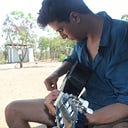How Humanity’s Use of Antibiotics Is Engineering the Perfect Superbug
It’s time to take steps to avoid the antibiotic apocalypse
Five years ago, researchers at Harvard Medical School released a video of an experiment, revealing how easy it is for bacteria to become resistant to antibiotics.
The team constructed a large petri dish for growing bacteria and separated it into distinct bands. Across the dish, the bands contained progressively higher concentrations of antibiotic, from 0 to 1,000 times the concentration that bacteria can normally tolerate. Then they grew bacteria, starting in the band with no antibiotics.
Over time, the bacteria grew and spread across the different bands. At the border of each new band, growth paused until antibiotic-resistant mutants emerged and continued spreading across the plate. After only 10 days, the bacteria had become completely resistant to antibiotics at 1,000x concentration due to successive mutations that allowed the bacteria to develop antibiotic resistance.

